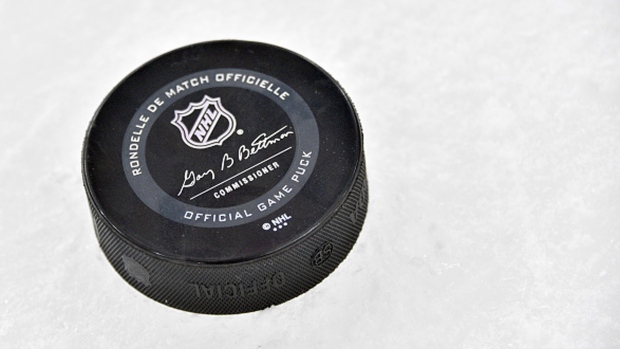Apr 14, 2020
Insider Trading: When will NHL make final call on season?
The NHL has extended their quarantine from April 15th to April 30th. So when will the league decide on cancelling or trying to continue the season? Could next season be in jeopardy? TSN Hockey Insiders Bob McKenzie, Darren Dreger and Pierre LeBrun have more.
TSN.ca Staff

Gentlemen, the NHL extending the self-quarantine of players, coaches and staff from April 15 to 30. That’s not a surprise. Pierre, any idea when they will make a firm call, as to whether to try to finish the season or just call it a year.
LeBrun: And the answer I got today James was ‘not sure yet’. That mirrors what I’m told from another source, that the calls between the NHL and NHLPA over the past week, that have tried to update where they are and to project outwards, they really haven’t brought up a firm deadline to either when they should call the season, or try to have a season resumption. But know this. If you’re going to ask players who are in Europe right now to come back and play, they’re going to have to be quarantined for two weeks. You’re going to have to have a training camp. Potentially, some exhibition games, some regular season games before a playoff in the summer in July and August. So you’re going to need time. One governor I spoke with today said by late May they should have an idea. Another one said to me by mid-June you really have to know what you are doing. And keep in mind. The NHL is still in phase one of self-quarantine. Phase two is when players can get together in small groups and skate and that doesn’t seem to be close.
Gary Bettman told CNN yesterday he’d expect two-to-three weeks for players to get in game shape. Dregs, coaches know it may not happen. But, they have to plan for it to actually happen. What are their concerns when players do get back if they do?
Dreger: Well the number one concern is injury. No player has ever gone two or three months without skating and then jumped into a mini training camp or exhibition or regular season games. Number two on the list would be the energy level, the intensity level. This time of year, many of the playoff teams are running at full speed. Well, that won’t be the case when the players return. It might be for some. It won’t be for others. Will there be a willingness to finish checks, block shots. How long will it take to amp up that intensity? And then the third factor is the spoiler factor. And that’s the non-playoff team. And they could be a huge threat to those on the bubble. We’re talking about teams who are going to put out their young guys. Guys who are auditioning for jobs. That type of scenario. Those will be huge points on the line. Those are things going through the coaches’ minds right now.
And most of the context of all NHL discussions the last few weeks have been about trying to finish this season. But, Bob, if you listen to the medical experts next season doesn’t seem like a guarantee in the least.
McKenzie: It was fascinating listening to the surgeon general of Florida yesterday at a news conference. Where until he was unceremoniously whisked away, presumably because the messaging he was giving may not have been to the liking of the govenor of Florida. But it was interesting to hear him say that there won’t be or that there shouldn’t be any large mass gatherings in public until such time that a vaccine for the coronavirus is widely available to the population. And then he went on to say that it’s probably going to be at least a year, if not longer, before that vaccine is available. This is consistent with what a lot of people in the medical and scientific community in the last number of days have been raising as a possibility. That there should not be and there won’t be any mass gatherings until that vaccine is in place. And if so, that’s chilling news for the professional sports leagues, at least the economies of the professional sports leagues, and yes, the NHL is trying to conclude the 2019-20 season. But to think ahead to the 2020-21 season at the prospect of, perhaps, all of the season or a good part of the season maybe not being played before any fans or getting any ticket revenue for that. It’s a chilling prospect for the economics side of things. And this is consistent with medicine and science on one side and politicians and financial people on the other side and that push/pull about restarting the economy.

